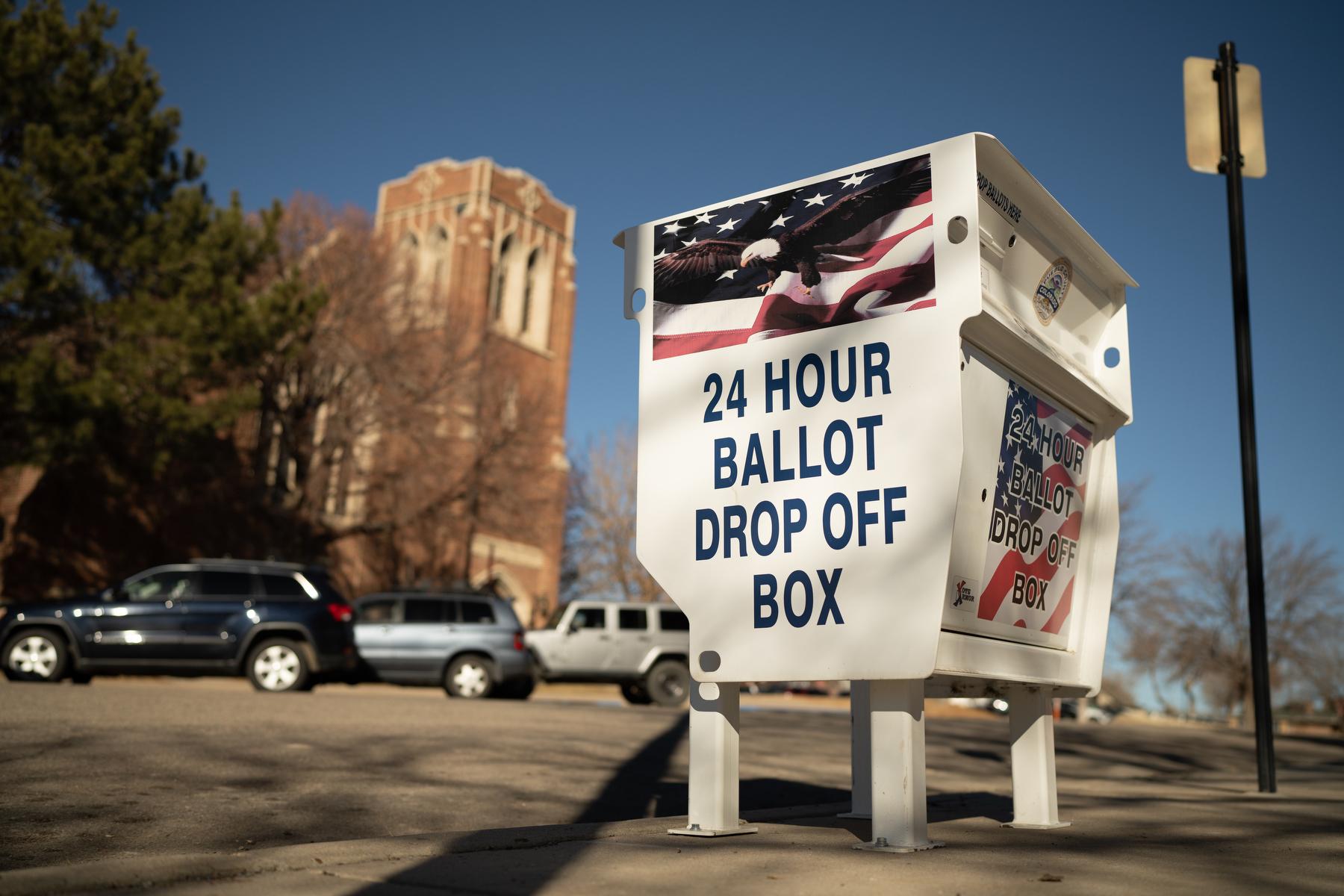
This story was produced as part of the Colorado Capitol News Alliance. It first appeared at coloradosun.com.
Colorado’s union and business leaders announced Saturday that after months of negotiations, they have failed to reach a deal on the future of the Labor Peace Act, setting up a high-stakes showdown between Democrats in the legislature and Gov. Jared Polis.
It’s been nearly a month since there was any legislative action on Senate Bill 5, which would abolish a requirement in the Colorado Labor Peace Act that 75 percent of workers at a company sign off before unions can negotiate with businesses over union security. Union security is the term for when workers are forced to pay fees for collective bargaining representation — whether or not they are members of their workplace’s union.
The measure is a priority for unions and loathed by business interests. The two sides have been working for months to find a compromise.
But with less than five days left in Colorado’s 2025 legislative session, Democrats will move forward with the measure as introduced. The session ends Wednesday.
“Representing workers who are ready for change, we came to the table in good faith but business walked away from a meaningful compromise that would have made our system fairer and safer for working people,” Dennis Dougherty, who leads the Colorado branch of the AFL-CIO, said in a written statement Saturday.
Assuming the measure passes, as is expected, that will force Polis to decide whether to sign or veto a piece of legislation that he has blasted from day one.
Polis has repeatedly said that he opposes any effort to totally repeal the union security vote. He has floated lowering the 75 percent threshold as an alternative.
“My yardstrick will be: Does it bring business and labor together in support of a way of organizing that’s more stable and does it preserve the right of workers to be able to have a say in whether union fees are required to be deducted from their paycheck?” Polis told The Colorado Sun in March.
The governor has suggested that labor has gotten in its own way.
“The business community has proposed several changes,” he said. “There’s absolutely a victory for labor, if they will simply take it.”
On Saturday, Polis was noncommittal on whether he would sign or veto the bill.
“The governor worked hard with both labor and business to try to reach an agreement to update the Labor Peace Act to provide workers more opportunities to organize while preserving Colorado’s unique status as a labor peace state," a spokespersons said in a written statement. "Unfortunately, although we came very close, the gap could not be bridged between labor and business on a stable agreement. Gov. Polis wants to acknowledge how much he has appreciated the robust conversation. He hopes both sides find a way forward in the future that reflects our shared goals of prosperity, fairness and opportunities for workers.”
Unions are required to bargain on behalf of all workers at a company, whether they are in the union or not. That’s why they feel it’s only fair that union security be imposed to cover the cost of things like lawyers and negotiating experts.
The union security elections are run by the state Department of Labor and sometimes the state isn’t so fast. That can drag out the unionization process, during which the makeup of the workplace can shift and momentum can slow. And employers can do more to pressure workers to change their minds about unionizing.
Loren Furman, president and CEO of the Colorado Chamber of Commerce, previously said the business community offered three proposals to labor that would reduce the 75 percent threshold required for the union security vote and shorten the time between the simple majority vote to form a union and the vote over whether to begin negotiations over union security.
Dougherty said labor leaders were open to a proposal from the governor's office that would have eliminated the second election in the vast majority of unionization cases.
“That proposal stalled so we’re moving forward” with Senate Bill 5, he said. “Once again, we urge Gov. Polis to stand with Colorado’s nurses, construction workers and service employees — the people who power our economy every day — instead of siding with billionaire CEOs and corporate consultants trying to maintain the status quo that hurts working Coloradans.”
The governor and Colorado’s labor movement have been at odds since last year, when he vetoed three of their priority bills. Union leaders, joined by a who’s who of Democratic lawmakers, gathered on the Capitol steps in the weeks after last year’s legislative session to blast Polis. Attendees included the secretary of state and treasurer, as well as Colorado Democratic Party Chairman Shad Murib and top lawmakers.
If Senate Bill 5 passes and Polis vetoes it, the blowback from unions and fellow Democrats could be immense. The labor movement has suggested it will try to stymie Polis should he run for president. Top national union officials have leaned on the governor to get behind Senate Bill 5.
There were political reasons for business and labor not to budge in Senate Bill 5 negotiations.
The business community knows Polis is unlikely to sign the measure without big changes. And labor knows that the governor will only be around until early 2027. There is also the distinct possibility of a costly ballot measure fight.
State Rep. Javier Mabrey, a Denver Democrat and a lead sponsor of the bill, told reporters in March that if Polis won’t sign the bill, he thinks his successor will.
“I’m confident that Michael Bennet would sign it if we’re unable to get it done this year,” Mabrey said, referring to Bennet’s run for governor.
The Sun asked Bennet last month if he would sign Senate Bill 5 if he were governor. He said he’s “very familiar” with the issue but that he thinks “it’s best to let people work their will.”
“I hope they come to a compromise that serves all parties well,” he said. “I don't want to comment (further) because I don't want to mess with the negotiation.”
Mabrey said Saturday that he is “excited to give the governor the opportunity to do the right thing.”
Furman said Saturday evening that business leaders were still negotiating as of that morning.
Even if a deal were to be cut in the coming days, there may not be time to pass the bill. Under Colorado's legislative rules, anything short of eliminating the union security vote would require a new bill. It takes a minimum of three days to pass a bill at the Capitol, so Monday is the last day a compromise measure could be introduced.
Senate Bill 5 now must get two votes in the House before reaching the governor’s desk. Republicans will fight it, but they are in the minority and are mostly powerless to stop it from passing.
This story was produced by the Capitol News Alliance, a collaboration between KUNC News, Colorado Public Radio, Rocky Mountain PBS, and The Colorado Sun, and shared with Rocky Mountain Community Radio and other news organizations across the state. Funding for the Alliance is provided in part by the Corporation for Public Broadcasting.








